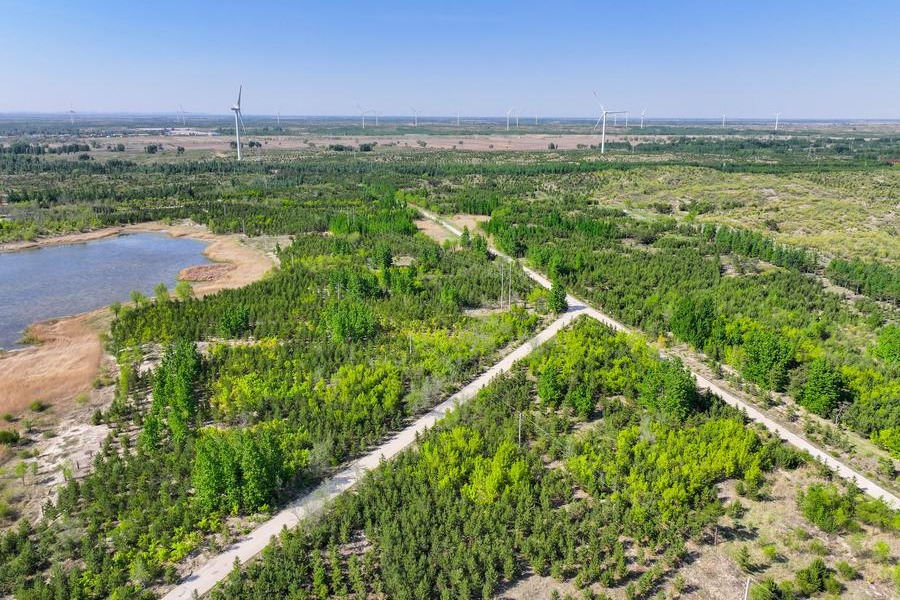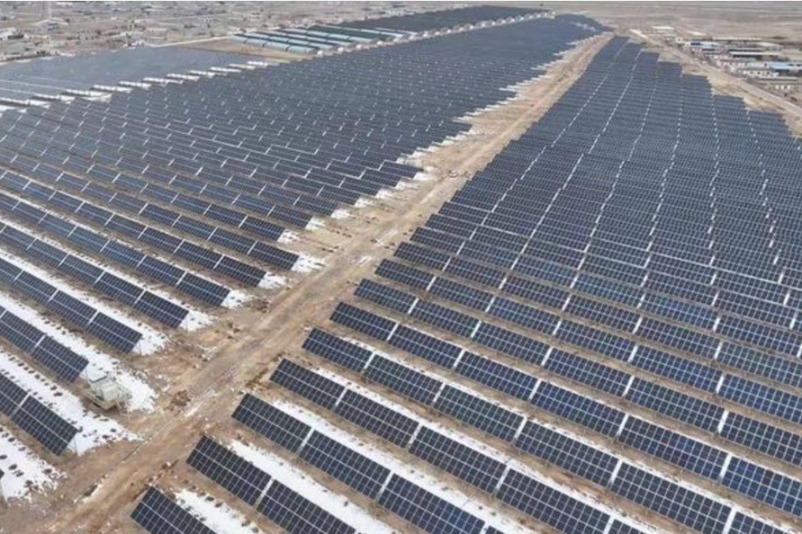Openness and national security
Economic security is becoming the defining criteria for trade and investment cooperation

Economic security is becoming the defining criteria for trade and investment cooperation

President Xi Jinping presented a strategic vision of national development that will impact global development for years ahead at the 20th National Congress of the Communist Party of China.
China has adhered to a policy of opening-up since 1978. This determination will have a long-term stabilizing impact on the world situation. President Xi promised to work hard to remove deep-seated institutional barriers to reforms and opening-up. He promised to transform China's institutional strengths into effective governance. China hopes to attract global resources and production factors to strengthen its economy and improve the level and quality of trade and investment cooperation.
On the other hand, President Xi mentioned that challenges are concurrent and uncertainties and unforeseen factors are rising. He stressed the necessity to prepare in advance for potential dangers and worst-case scenarios. He called for China to be able to withstand high winds, choppy waters and even dangerous storms. One of the key paths to this goal is increasing national self-reliance and potential in science and technology.
China's strategy provides valuable wisdom and lessons to the outside world. In order to be truly open, a nation must feel secure, it should not be vulnerable to external pressure or meddling and manipulation in its internal affairs. In the coming years, opening-up will be measured by the strict criteria of economic security. It's important to note that the Chinese paradigm of "dual circulation "provides an important reference to policymakers around the world on balancing economic resilience and domestic development priorities with reform and opening-up policies.
There will be no world prosperity without openness and globalization. But there are mounting risks that globalization will be damaged by the negative trends in international relations and the security sphere. Several decades ago the notion of globalization looked inseparable from the West-led international system. Now the Western policy of economic sanctions and trade blockades create a significant obstacle on the path of openness. The weaponization of globalization compels us to think about striking a balance between openness and national security.
The negative dynamics of the global economic crisis of 2008 accelerated greatly after the US launched a full-scale trade war against China in 2018. The COVID-19 pandemic dealt a severe blow to global supply chains. Many nations felt insecure when encountering a dangerous deficit of medical supplies in global markets. The Ukraine conflict has resulted in multiple Western sanctions against Russia.
From the point of view of economic rationality and competitiveness, the development of domestic production sometimes looks redundant. However, the pandemic and the policy of sanctions are forcing politicians and businessmen around the world to think about what will happen if the existing economic chains are destroyed. In case of sudden halt of supplies of a particular product, if it is impossible to find another foreign supplier, a crisis situation may arise that can have a negative impact on a nation's security.
The attempt of some nations to stop the development of their competitors has already moved from the realm of limiting openness in advanced technologies to destroying interdependence in raw materials and energy resources. It is natural that Western pressure generates a strong desire in other nations to lessen their dependence on international trade and to protect their economic security. There are fewer and fewer opportunities to develop true global cooperation in advanced technologies. This sphere will continue to disintegrate and cooperation alliances will be formed along the lines of political preferences and military alliances.
However, in the current stage of global development, the West won't be able to destroy globalization. New rising economic powerhouses are ready to act as supporters of openness in the international economy. Attempts to destroy an economy of a non-Western nation by excluding it from Western markets will accelerate the forming of new economic ties and flows of goods that bypass the Western world. The prominence of non-Western bulwarks of openness and of non-Western economic groups and institutions will increase.
There is no fast and easy way to rebuild the missing trust among major nations that enormously impact the degree of openness of the world economy. This process will be slow and incremental. It will not start in the foreseeable future, so it is possible to expect that the tendency toward more limited regional openness will become more visible and important than world openness. It is not bad as a temporary transition, thought it is necessary to do everything to prevent direct conflicts between competing regional blocks.
The risk of a new Cold War in the geopolitical sphere is already here. Expansion of the West-centered military blocs and alliances creates instability that could easily spread from Europe to Asia. In this situation, endangered economic openness should not be discarded. It should be supported and protected. The positive path is to protect remaining economic ties as much as possible to prevent the world from sliding into global confrontation.
The relative decline of the Western model of economic globalization opens room for new types and strategies of globalization. Possibly we will see a new situation of multiple globalization models and mechanisms with greater roles and responsibilities for non-Western nations. China has both the material and intellectual resources to play an important role in advancing global economic openness. China can lead like-minded partners by example by adhering to its strategy of opening-up and reforms.
The author is deputy director of Scientific Work and head of the Center for Asia-Pacific Studies of the Primakov National Research Institute of World Economy and International Relations at the Russian Academy of Sciences. The author contributed this article to China Watch, a think tank powered by China Daily.
Contact the editor at editor@chinawatch.cn.


































